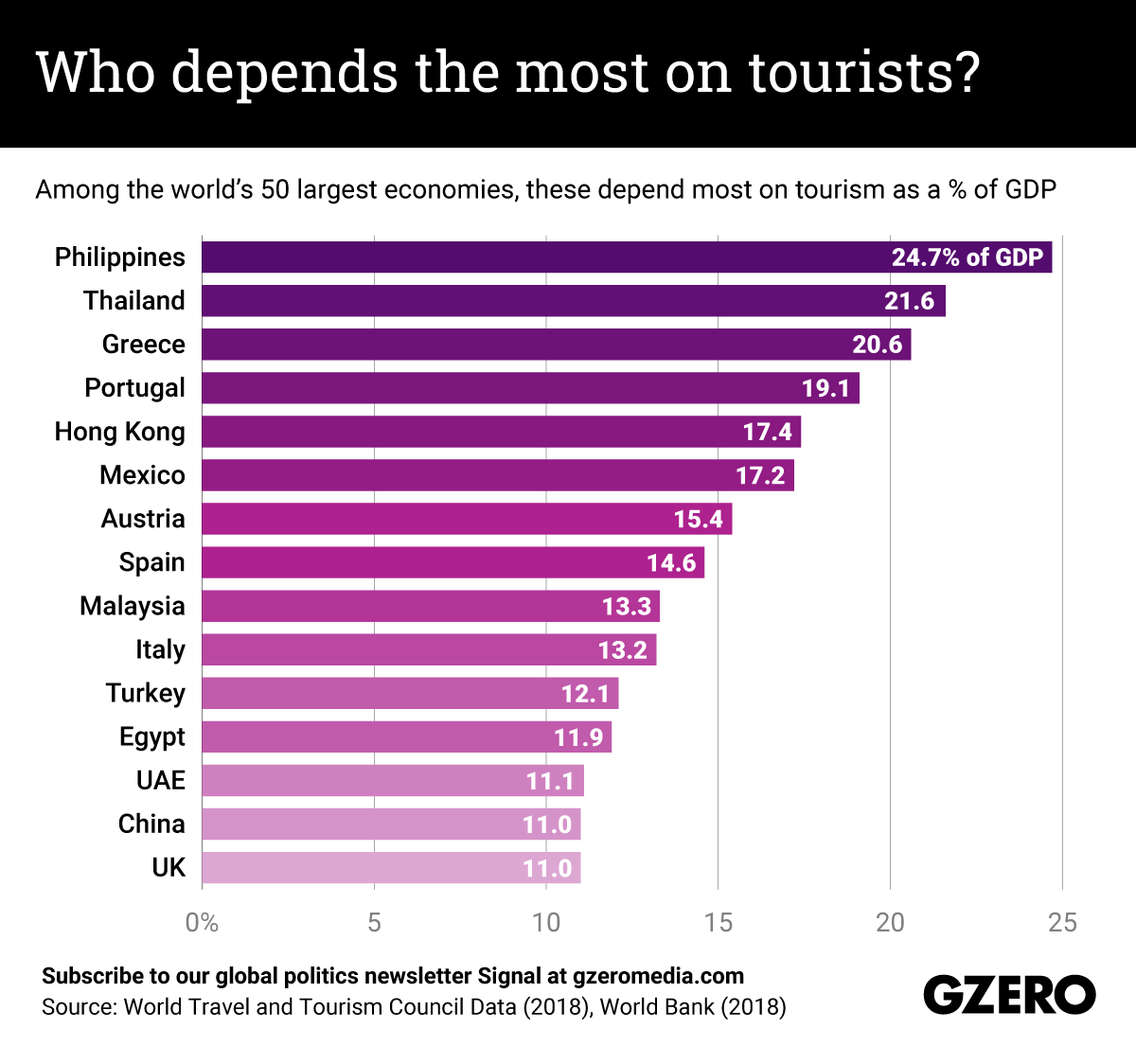May 14, 2020
Few sectors of the global economy are immune from pandemic-induced economic pain right now, but some find comfort in the fact they will bounce-back in the near or medium-term. The travel business, which has been brought to a standstill as billions of people have been forced to stay home, may not be one of those lucky industries. As social distancing will likely remain a reality until a COVID-19 vaccine is made available – a process that could still take 12-18 months – people's appetite to take foreign holidays is unlikely to bounce back in a big way. And many countries will keep their borders closed to non-residents for months to come, as fears of contagion persist. This is a huge blow for countries that rely on tourism to pump cash into their economies. Travel contributed a whopping $8.8 trillion to the global economy in 2018 and was responsible for 10.4 percent of all economic activity around the world. So, which large economies stand to lose the most from the tourism downturn? Take a look.
From Your Site Articles
More For You
The World Health Organization (WHO) headquarters is seen in Geneva, Switzerland, January 28, 2025.
REUTERS/Denis Balibouse
Seventy-eight years after helping found the World Health Organization (WHO), the United States has formally withdrawn from the agency, following through on a pledge President Donald Trump made on his first day back in office.
Most Popular
- YouTube
GZERO World heads to the World Economic Forum in Davos, where Ian Bremmer lookst at how President Trump’s second term is rattling Europe, reshaping both transatlantic relations and the global economy, with Finland’s President Alexander Stubb and the IMF’s Kristalina Georgieva.
- YouTube
At the 2026 World Economic Forum in Davos, entrepreneur Strive Masiyiwa warned that artificial intelligence is advancing faster than the global leadership needed to manage it.
On Thursday, Ukraine’s energy minister said that the power grid suffered its most difficult day since Russia’s full-scale invasion in 2022.
© 2025 GZERO Media. All Rights Reserved | A Eurasia Group media company.
